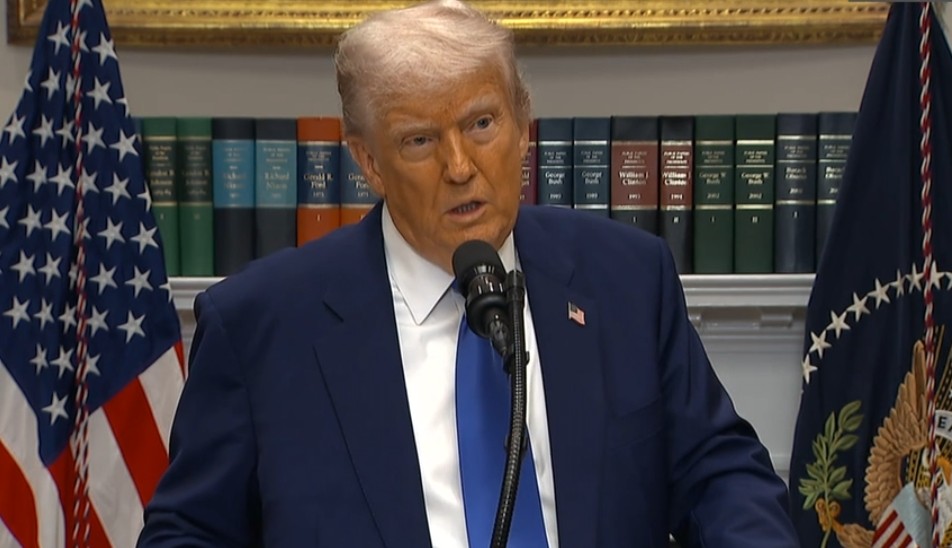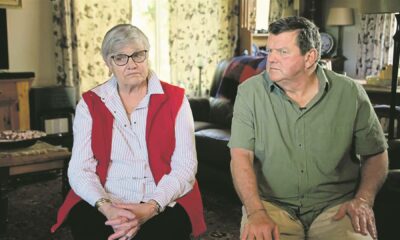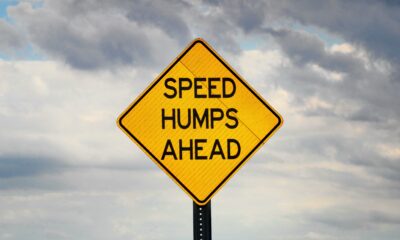News
Who Counts as an Afrikaner? Trump’s Resettlement Plan Reignites Identity Debate in South Africa

As the second wave of South Africans quietly lands in the United States under Donald Trump’s controversial Afrikaner resettlement initiative, a deeper and more uncomfortable question has begun to echo across South Africa: who really qualifies as an “Afrikaner”?
Behind the bureaucratic calm of visa interviews and resettlement processing lies a storm of cultural debate and political unease, especially for those who sit at the intersection of language, race, and history.
The Controversial Offer That Sparked the Fire
It began as a whisper, turned into a headline, and now it’s a polarising reality: the Trump administration has greenlit the resettlement of white South Africans specifically Afrikaners claiming persecution back home.
According to Solidarity’s Jaco Kleynhans, interest has been immense: 70,000 enquiries and 8,000 formal applications have already poured in. But Solidarity is careful to clarify that it’s not orchestrating the effort — just guiding queries.
The US Embassy in Pretoria has also confirmed that it is conducting interviews with eligible applicants and arranging for their relocation on commercial flights. Around 50,000 people have reached out to the embassy with interest.
But what exactly does it mean to be eligible?
The Criteria and the Controversy
According to the U.S. Refugee Admissions Program (USRAP), three boxes must be ticked:
-
South African nationality
-
Afrikaner ethnicity or membership in a racial minority
-
A past or future fear of persecution
On paper, that may seem straightforward. In reality, it’s a Pandora’s box.
Professor June Bam-Hutchison of the University of Johannesburg says the criteria are steeped in racial bias: “This is not about protecting the oppressed — it’s about upholding global white supremacy,” she argues. “Trump’s version of ‘Afrikaner’ is tethered to apartheid nostalgia.”
But for some applicants, the appeal isn’t about race — it’s about fear and survival. Kleynhans says many Afrikaners feel “completely alienated from the country they love.”
“We’re seeing real despair among our people,” he added. “This is not about abandoning South Africa. It’s about securing a future.”
Can Coloured and KhoeSan People Apply?
That’s where the debate takes a fascinating turn. Some legal and cultural analysts believe that the language of the US program is broad enough to include historically marginalised groups, like the KhoeSan and the Coloured community.
Political analyst Clyde Ramalaine says the criteria, when read literally, support such inclusion: “Nationality? Check. Minority? Absolutely. Persecution? Documented.”
If that’s the case, it poses a political dilemma, especially in a country still grappling with the shadow of apartheid’s racial categories. Would a Coloured Afrikaans speaker from the Cape Flats be eligible?
“Yes,” says Kleynhans, though many critics doubt the Trump administration’s willingness to extend the offer that far.
What Does “Afrikaner” Even Mean in 2025?
Lance Schultz of the Pan South African Language Board (PanSALB) offered a historical deep dive into the evolution of the word “Afrikaner.” Originally a Dutch term for “African,” it once applied broadly, even to those of mixed descent.
Over time, however, it was co-opted by the white, Dutch-speaking settler community and solidified as an identity marker under apartheid. Today, it’s a contested label.
“There is a growing argument that Afrikaner identity should include all Afrikaans speakers, regardless of race,” Schultz explained.
But this more inclusive vision clashes with the Trump-era executive order’s narrow framing which critics argue recycles an apartheid-era interpretation.
Public Reaction: Between Rage and Relief
On social media, the reactions have ranged from disbelief to despair. Some accuse the US of selectively offering refuge based on skin colour, while others particularly within conservative Afrikaner circles see it as long-overdue recognition.
One X (formerly Twitter) user wrote: “So now Trump wants to ‘save’ Afrikaners but couldn’t even denounce white supremacy on his own soil?”
Another posted: “My ouma is Afrikaans-speaking and brown. Will she be accepted, or is this just a backdoor for white flight?”
A Deeper Agenda?
For Professor Bam-Hutchison, this isn’t just about migration, it’s geopolitics. She believes the resettlement scheme is about bolstering white identity politics globally while posturing for influence in Africa.
“Let’s not forget, Trump’s America isn’t exactly known for its love of refugees,” she said. “But suddenly, there’s compassion for white ones. It’s a gesture laced with irony in the face of Gaza and Black Lives Matter.”
Whatever Trump’s motivations, this initiative has exposed deep fractures in South Africa’s collective sense of identity.
In a country where language, race, and history collide daily, the question of who belongs and who doesn’t can’t be answered with a visa application form.
As the planes land in America and the debates rage on back home, one thing is clear: the word Afrikaner carries more weight and more complexity than any one policy can contain.
{Source: IOL}
Follow Joburg ETC on Facebook, Twitter , TikTok and Instagram
For more News in Johannesburg, visit joburgetc.com


























